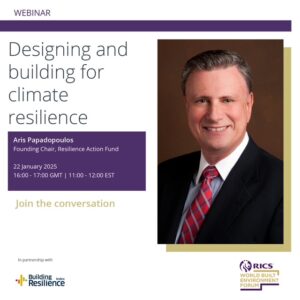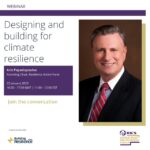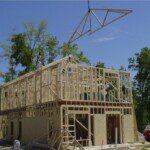Resilience Action Fund (RAF), a nonprofit dedicated to educating the public on more resilient homes and communities, is pleased to announce its engagement with The International Finance Corporation (IFC), a World Bank Group member, to develop a Building Resilience Index (BRI) that will support resilient building practices worldwide.
Through its Adaptation and Resilience Action Plan, the World Bank has elevated resilient development to an equal footing with climate mitigation, with each complementing the other. The plan, expected to reach $50 billion in adaptation climate finance over five years, was launched to help people worldwide build a more resilient future. About a decade ago, IFC introduced its building resource efficiency certification, called EDGE. It has since become an international standard for green buildings, with over 120 million square feet of buildings certified.
Public and private organizations will leverage BRI to quantify, evaluate and improve the resilience of buildings to hazards. As no general building resilience rating presently exists, it is expected that this Index could become the standard for rating buildings on hazard resilience and adaptation. There is a growing need for such a standard, in order to rate project bonds as ‘climate resilient’, similar to the already active ‘green’ bond market.
Before broadly releasing, IFC will conduct a Technical Testing Phase on a range of buildings and call for a Technical Review Panel (TRP) to review and allow for any adjustments to the application. IFC and RAF selected the Philippines as the country for the testing phase, because of its multitude of natural hazards and climate-related challenges.
“The Building Resilience Index will be an important asset worldwide to inform officials, planners, developers, financiers, residents and stakeholders on best practices for building resilience and to promote early action in development,” said Aris Papadopoulos, Founding Chair of Resilience Action Fund. “This is an important and necessary step towards establishing safer communities and societies, which are built to withstand the long-term realities of both climate and non-climate related hazards. We are honored to be selected by IFC to engage in this project and contribute on a large scale towards a more resilient future.”
RAF’s support during the pilot program will include reviewing the application as drafted, advising on overall design and conduct of the testing phase, selecting buildings and assisting in creating TRP, which will be chaired by RAF. RAF will further evaluate and summarize panel recommendations and work with IFC to apply changes to BRI and its technical guide. After launching BRI in the Philippines, testing and adaptation for other countries may follow.









